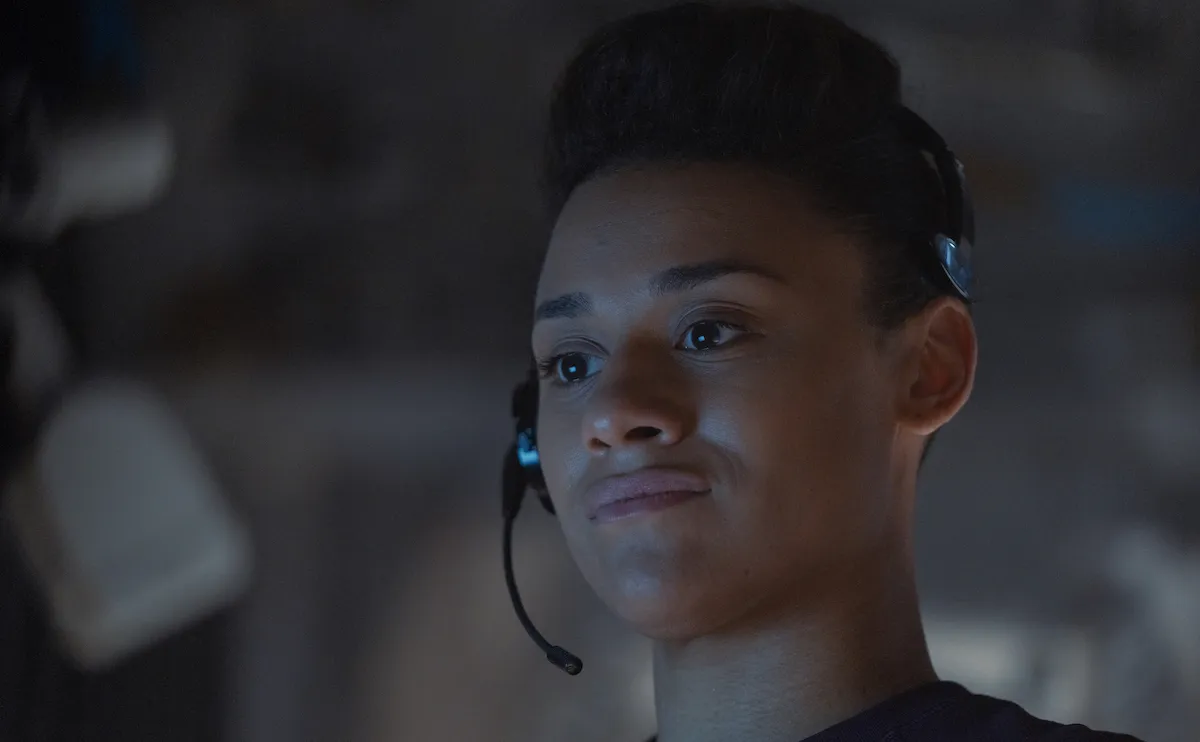Despite the global turmoil of the 20th and 21st centuries, the International Space Station has stood as a beacon of hope for humankind, promising a future in which civilization works together to explore the stars. But what happens when that promise implodes overnight?
In I.S.S., Dr. Kira Foster (Ariana DeBose) is the newest researcher aboard the space station. After her Soyuz capsule docks, she’s welcomed into one of the most peculiar and tightly-knit communities in human history: the small group of scientists and astronauts that work and live in the I.S.S.’s cramped quarters. Everyone has their research agenda, their quirks, and their hidden bottles of booze.
Kira hasn’t been there long, though, when she sees something startling outside the window: a flash of light on the planet’s surface, followed by another, and another. Nuclear war has broken out, and the Earth is burning. Communications from the surface soon go dark, but not before the American and Russian contingents on the I.S.S. get new orders: take control of the station at all costs.
The new orders set off a fantastically morbid chain of events. The crew doesn’t have the luxury of ruminating over what might be happening below, because thanks to the cut comms with mission control, the I.S.S.’s thrusters are offline and the station is falling out of the sky. Plus, everyone on board is suddenly trying to kill each other.
Each character’s motivation is believable, even when the details of their schemes and machinations are hard to keep track of. The plot isn’t just Americans versus Russians. In a haze of paranoia and confusion, in which no one is sure who’s loyal to whom, everyone turns on each other. Alliances shift and break down in seconds. Bodies go flying. Kira is a great audience surrogate as she navigates the chaos, surrounded by the big personalities of her crewmates. Weronika (Masha Mashkova), one of the Russians, is mercurial but sympathetic. Kira’s American colleague Christian (John Gallagher Jr.) is an intriguing maverick. The plot gets more confusing as it thickens, but it’s still a lot of fun to watch.
The production design of the movie is great, too—and it’s especially impressive for an indie project. Sure, there’s some visible CGI sometimes, but overall, the film captures the feel of the station’s claustrophobia, and the chilling expanse outside its hull.
Where the movie really falters is its treatment of the apocalypse unfolding on the ground. The molten surface we see in the trailer makes it clear that the planet is completely screwed, so what’s the point of taking control of the station when it looks like there will be no civilization left to give it to? What do the remnants of humanity plan to do with the I.S.S., anyway? These questions aren’t necessarily plot holes—they’re genuinely interesting dilemmas that the film could have explored, and it’s strange that the story shies away from them.
Still, I.S.S. is a fun, taut sci-fi thriller, if you feel like some Cold War paranoia in microgravity.
I.S.S. is playing in theaters on January 19.
(featured image: Bleecker Street)










Published: Jan 15, 2024 09:00 am